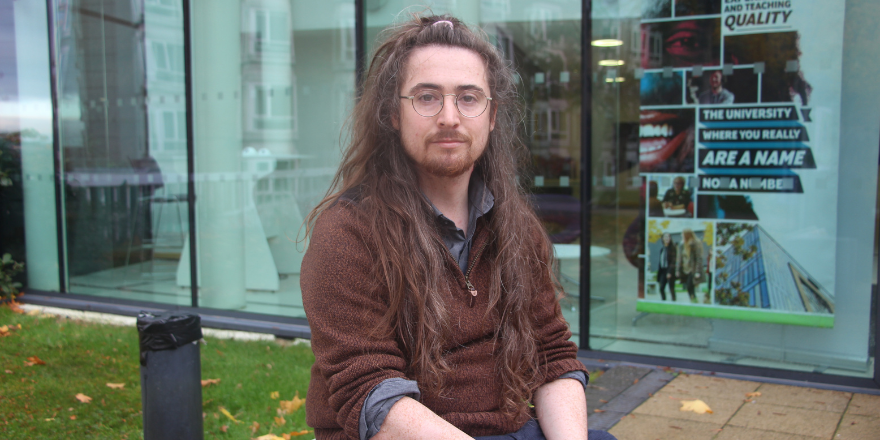ADHD in education: a student and lecturer perspective

David Ellis, a Lecturer in Philosophy, Ethics and Religion at Leeds Trinity University, shares some of his reflections to help promote awareness and representation of ADHD (attention deficit hyperactivity disorder).
“I’ve been asked things like “haven’t you grown out of ADHD?” countless times, and it’s usually asked out of ignorance. But these sorts of questions carry misrepresentative and perhaps even discriminatory connotations. Asking whether I have grown out of ADHD implies that I’m underdeveloped, that I’m a child, that I’m not a ‘real’ or ‘proper’ adult, and that ADHD is a detriment which needs to be removed. People ask these questions because the only context they have for ADHD is the classroom. They think of ADHD and they think of disruptive children who fail education, hence the bemused faces when I tell people that I have ADHD and that I’m a university lecturer with a PhD. People cannot put the two together, and that’s the problem. ADHD is not the issue in education, the issue is society’s inability to imagine that a person with ADHD can succeed in education. We are, as it were, set up to fail from the very start.
“Of course, ADHD adds to my life’s difficulties and challenges, including education, but I don’t understand it as a difficulty. I understand it as part of who I am. Students who take medication for ADHD sometimes wonder “which one am I, the one on or off the medication; am I better or worse on or off medication?”, partially because society frames ADHD as not simply a ‘difficulty or disability’ for the person who has it, but as a problem for everyone else. There’s an assumption that students with ADHD will not only struggle and fail, but they’ll cause a lot of hassle for the teacher, they’ll be disruptive for the rest of the class, and will therefore cause other students to also struggle and fail. Sometimes it feels like you want me to take my tablets for your sake and not mine. Society leads people to believe that ADHD is akin to an illness and Ritalin is its cure. I’m glad that I have ADHD and I don’t want to ‘grow out’ of it. I’m glad of my energy and imagination, my spontaneity and how I’m always doing something.
“We all agree that student experience does not happen in just the classroom but throughout the life of each student, yet we fail to think about ADHD in that way. ADHD is not a technical term for a pedagogical challenge, even though it might challenge your pedagogical practices and skills. ADHD is above all else part of the student, part of the person you want to help flourish, and it must be understood in this holistic sense. But where do these reflections leave me? I think, at the very least, they leave me with this thought which I hope my colleagues might also reflect on – it’s not that people with ADHD often fail education, it’s that education can often fail people with ADHD. We are proud to offer a supportive University community at Leeds Trinity and I’m determined to work with colleagues and students to help everyone have a positive experience.”
Reproduced with permission from Leeds Trinity University.
